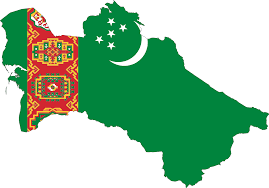The Organization for Security and Co-operation in Europe (OSCE), in close partnership with the United Nations Development Programme (UNDP) and with the financial support of the European Union (EU), hosted a regional coordination meeting of Aarhus Centres and key stakeholders from Kyrgyzstan, Tajikistan, and Uzbekistan on 17–18 July in Khujand, Tajikistan. As part of the project “Stakeholder Engagement for Uranium Legacy Remediation in Central Asia” (Phase III), the event focused on strengthening regional cooperation and people-centered solutions in addressing uranium legacy risks in Central Asia, the Delegation of the European Union to Tajikistan reported.
During the event, Aarhus Centres and equivalent organisations from Kyrgyzstan, Tajikistan, and Uzbekistan signed their first trilateral Memorandum of Cooperation and Cooperation Plan for 2025-2027, marking a path for a more structured regional cooperation in the field of uranium legacy remediation, including efforts for the social and economic development of regions affected by uranium mining. The purpose of Aarhus Centres is to provide platforms to engage citizens, governments and the private sector in a dialogue on environmental challenges.
The meeting also served as a platform to review the activities of Aarhus Centres in Osh (Kyrgyzstan), Khujand (Tajikistan), and the Federation of Sport and Ecological Tourism in Uzbekistan. Representatives of national radiation safety authorities, OSCE Field Operations, EU Delegation to Uzbekistan, and civil society came together to evaluate progress, align coordination and cooperation mechanisms, and reinforce joint objectives. The meeting included site visits and experience-sharing on environmental safety, green infrastructure, and community-based initiatives.
“Environmental and socio-economic issues with uranium mining legacy sites in Central Asia go beyond country borders. The Memorandum of Cooperation between Aarhus Centres in Central Asia is yet another milestone in finding and implementing common solutions. We are proud to fund this initiative, as we are witnessing a very strong cooperation among the countries of Central Asia and with the EU,” highlighted Wim Riepma, Head of Cooperation, EU Delegation to Uzbekistan.




